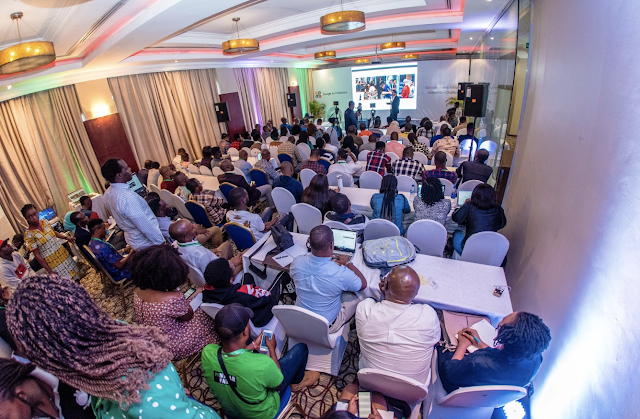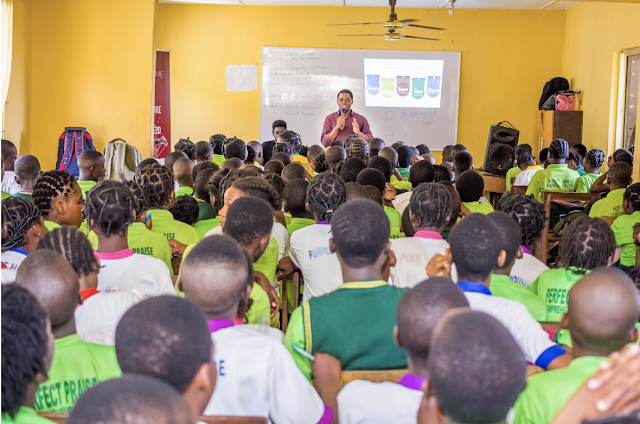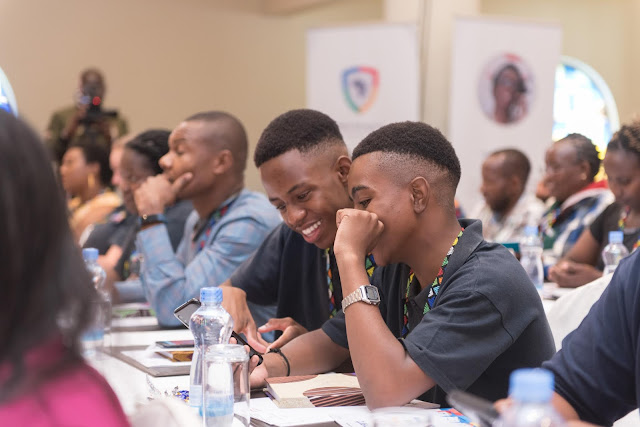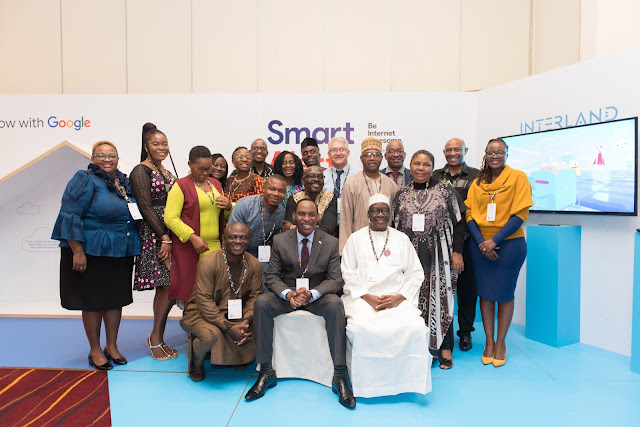Today, at our first ‘Google for South Africa’ event, we announced products and initiatives to help people in South Africa make more of the opportunities the internet has to offer.
Google Station: high-quality Wi-Fi hotspots in the Cape Flats Access to the internet in Africa is growing but it’s still limited. Only 39 percent of Africans have access to the web, compared to 54 percent of people in Asia, 68.9 in Latin America, 87 in Europe and 89 in North America. Many people in Africa don’t have Wi-Fi in their homes, relying instead on the few public Wi-Fi hotspots to connect, communicate and learn.
Today, we’re announcing
Google Station for the Cape Flats in the Western Cape: a program to provide fast, free and open Wi-Fi hotspots in partnership with ThinkWifi, an Internet service provider in South Africa.
Google Station is available in more than 100 locations across Langa, Khayelitsha, Gugulethu, Delft, Elsies River, Philippi and more. These areas are some of the most underserved communities with high unemployment and crime rates. By gaining access to information via the internet, we hope that people in these communities will get a more equal opportunity to learn and develop and live more empowered lives.
Bolo and Google Go: Helping you learn and enjoy the best of the webGoogle Go makes it easier to discover the best of the internet even on low-RAM smartphones or unstable network connections. Today, we're announcing some updates to make Google Go even more helpful. The
Discover feed is now integrated within Google Go to help you stay in the know with your interests, like the latest content on your football team, people of interest, music and news stories. Users are also able to use Google Go’s ‘read out loud’ feature to hear a website or a news story by tapping the play icon when they open a search result.
Starting today, you can access the Google Assistant directly from Google Go. Using only your voice, you can ask Google to call your mum, play the latest Kwesta video, or find the best route to your favourite kota place.
Bolo is a speech-based reading app that helps kids learn how to read in English. It encourages them to read out loud and then provides individual, customised feedback to help improve their reading capabilities. It’s already available in India, Nigeria, Ghana and Kenya and today we’re bringing it to South Africa.
Cameos and the Google Assistant: doing more with Google Search and the AssistantPeople come to Google Search for information, you want to know more about the world you live and connect with the things and people you like. You are constantly asking questions and searching for answers from celebrities and influential people as well, from where they grew up to how they got their careers started. So, we created Cameos, a selfie-style video app, which allows celebrities and public figures to answer questions about themselves directly within Google Search.
More and more people are searching using their voice, and often they come to Google Assistant for everyday actions like setting timers or learning how to make the best roast chicken. South Africans have been using the Assistant to get things done since we launched it in South Africa. Now the Assistant can help you do more. From today, you can ask your Google Assistant to order you an Uber or read you South African specific news from your favorite local news outlets.
Every day, people in South Africa and around the world turn to Google for help. We hope that the products and updates we're announcing today will make Google even more helpful for getting things done. We remain committed to bringing the transformational power of technology to people everywhere.
Posted by Nitin Gajria, Regional Director, Google Africa
==============
Google pour l’Afrique du Sud : pour un Internet au service des Sud-AfricainsPosté par Nitin Gajria, Directeur régional, Google Afrique
Aujourd’hui, à l’occasion de notre premier événement intitulé « Google pour l’Afrique du Sud », nous avons annoncé le lancement de produits et d’initiatives destinées à aider les Sud-Africains à profiter davantage des possibilités de l’Internet.
Google Station : points d'accès Wi-Fi de haute qualité dans les Cape FlatsBien que l'accès à Internet gagne du terrain en Afrique, il reste limité. Seuls 39% des Africains ont accès à Internet, contre 54% en Asie, 68,9 % en Amérique latine, 87 % en Europe et 89 % en Amérique du Nord. En Afrique, nombreux sont ceux qui n'ont pas le Wi-Fi chez eux ; ils se servent donc de rares points d'accès Wi-Fi publics pour se connecter, communiquer et apprendre.
Aujourd’hui, nous sommes heureux d’annoncer la mise en place de
Station Google dans les Cape Flats, dans la province du Cap-Occidental : ce programme a pour but de fournir des points d’accès Wi-Fi rapides, gratuits et ouverts en partenariat avec ThinkWifi, fournisseur de services Internet en Afrique du Sud.
Google Station est disponible sur une centaine de sites dans les districts de Langa, de Khayelitsha, de Gugulethu, de Delft, d’Elsies River, de Philippi et d’autres encore. Ces quartiers abritent les communautés les moins bien desservies, avec des taux de chômage et de criminalité élevés. En accédant à l’information via Internet, nous espérons que les membres de ces communautés pourront à leur tour bénéficier d’opportunités d’apprentissage et de développement, et prendre davantage leur vie en main.
Bolo et Google Go : vous aider à apprendre et à profiter du meilleur du web Google Go permet de profiter aisément d’Internet, même sur les smartphones à capacité de mémoire limitée ou avec des connexions capricieuses. Aujourd’hui, nous annonçons un certain nombre de mises à jour qui rendront Google Go encore plus performant. La fonction
Discover feed est maintenant intégrée à Google Go pour vous aider à suivre l’actualité qui vous intéresse, comme les derniers résultats de votre équipe de football, les personnalités que vous suivez, la musique et les informations. Les utilisateurs peuvent également utiliser la fonction de lecture à voix haute de Google Go pour « écouter un site Web » ou un article d’actualité en appuyant sur l’icône de lecture lorsqu’ils ouvrent un résultat de recherche.
À partir d’aujourd’hui, vous pouvez accéder à l’Assistant Google directement depuis Google Go. Simplement à la voix, vous pouvez demander à Google d’appeler votre mère, de visionner la dernière vidéo de Kwesta ou de trouver le meilleur itinéraire pour vous rendre chez votre vendeur de kota (sandwich traditionnel) préféré.
Bolo est une appli de lecture basée sur la parole qui aide les enfants à apprendre à lire en anglais. Elle les encourage à lire à voix haute et leur fait ensuite un retour individualisé et personnalisé pour les aider à améliorer leurs capacités de lecture. L’appli est déjà disponible en Inde, au Nigeria, au Ghana et au Kenya et elle arrive aujourd’hui en Afrique du Sud.
Cameos et l’Assistant Google : pour une meilleure utilisation de Google Search et de l’Assistant GoogleLa fonction Google Search permet de rechercher des informations sur le monde qui vous entoure et de vous connecter à ce qui vous plait et ceux que vous aimez. Parce que constamment vous posez des questions sur les célébrités et personnalités influentes, leur région d’origine et la façon dont elles ont commencé leur carrière, nous avons créé Cameos, une application vidéo de type selfie, qui permet aux célébrités et aux personnalités en vue de répondre directement aux questions à leur sujet dans Google Search.
Vous êtes de plus en plus nombreux à faire des recherches avec la fonction vocale. Vous utilisez par exemple l’Assistant Google au quotidien pour régler une minuterie ou connaître la meilleure recette de poulet rôti. Depuis que nous avons lancé cette fonctionnalité en Afrique du Sud, les Sud-Africains utilisent l’Assistant pour les aider dans leurs tâches du quotidien. Aujourd’hui, l’Assistant vous offre encore davantage de possibilités. Vous pouvez désormais demander à votre Assistant Google de vous commander un Uber ou de vous lire des informations qui concernent l’Afrique du Sud à partir de vos médias préférés.
Chaque jour, en Afrique du Sud et dans le monde entier, les gens se tournent vers Google pour se faire aider. Nous espérons que les produits et les mises à jour que nous annonçons aujourd’hui rendront Google encore plus utile pour faire avancer les choses. Nous maintenons notre engagement à mettre à la portée de tous, partout dans le monde, le pouvoir qu’a la technologie à transformer nos vies.














